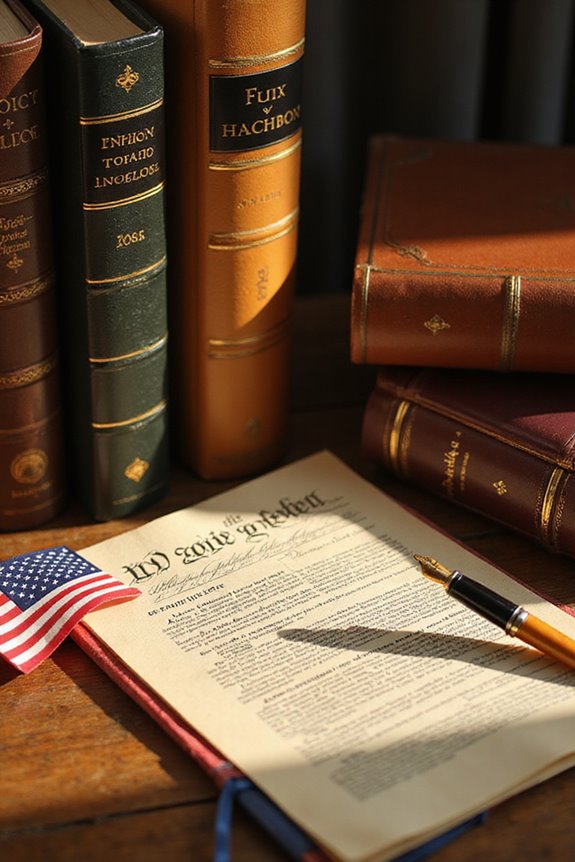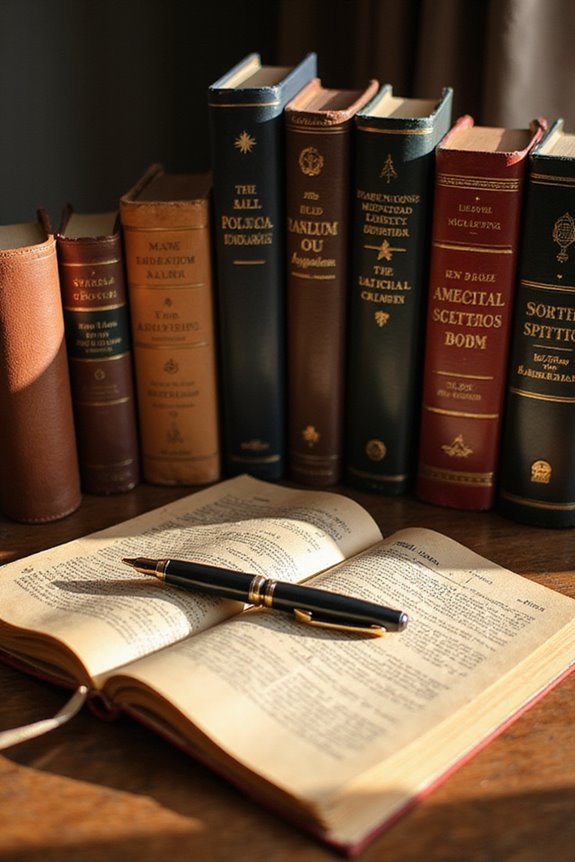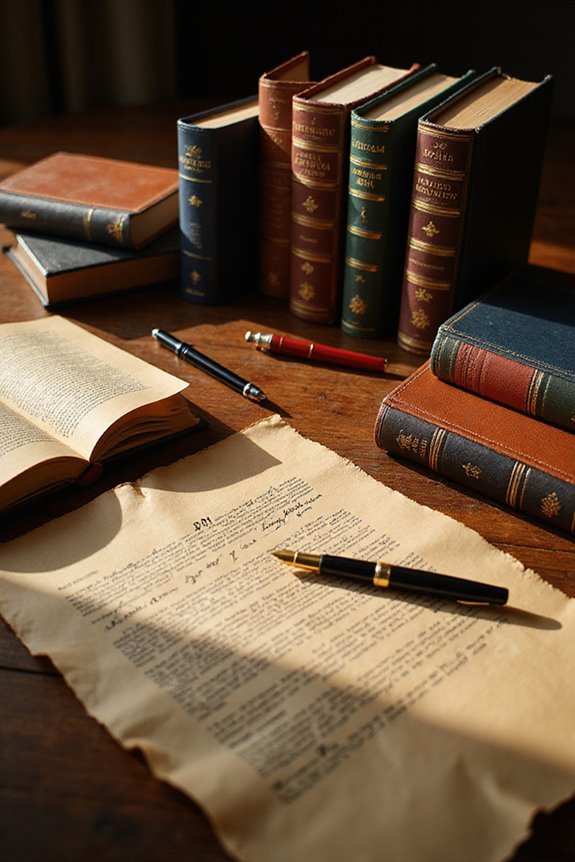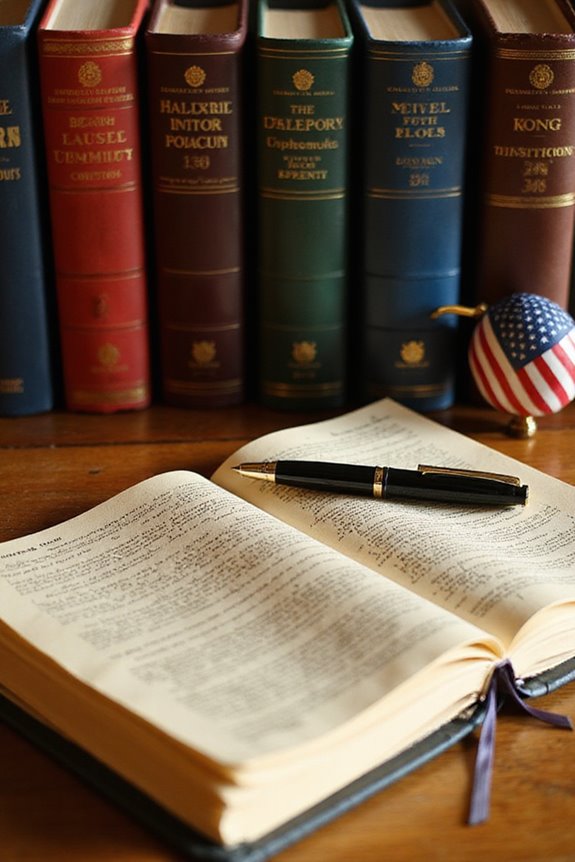When exploring the best political books, we should consider several categories:
- Classic Political Philosophy: *The Republic* by Plato and *Leviathan* by Hobbes provide foundational ideas about governance.
- Influential Novels: Works like *1984* by Orwell and *The Handmaid’s Tale* by Atwood critique societal structures through narrative.
- Modern Analysis: Titles like *Justice: What’s the Right Thing to Do?* give insight into contemporary moral debates.
Each of these texts contributes to our understanding of political dynamics, offering valuable perspectives. Further exploration reveals additional significant works.
Key Takeaways
- Classic political philosophy texts like The Republic and Leviathan provide foundational theories on governance and the social contract.
- Influential novels such as *1984* and *The Handmaid’s Tale* reflect real political issues through dystopian narratives and moral critiques.
- Modern analyses like *Anarchy, State, and Utopia* and *The Shock Doctrine* challenge traditional views on state intervention and neoliberalism.
- Historical works, including *Team of Rivals* and *Alexander Hamilton*, offer insights into leadership and the evolution of political systems.
- Books addressing power and corruption, such as *Profiles in Corruption* and *Dark Money*, reveal systemic issues in contemporary governance.
Classic Political Philosophy Books
When we explore classic political philosophy books, we uncover foundational texts that have shaped political thought for centuries. These works grapple with essential questions of ethical governance and political ideals.
- Plato’s The Republic introduces justice and the concept of philosopher-kings, influencing governance models. Classic texts remain crucial for understanding the evolution of political ideas across history.
- Hobbes’ Leviathan emphasizes a strong sovereign to prevent chaos, laying groundwork for social contract theory.
- Machiavelli’s The Prince provides pragmatic insights into power dynamics and statecraft.
- Rousseau’s The Social Contract argues for popular sovereignty and the general will.
- Mill’s On Liberty champions individual freedoms, highlighting limits on state authority.
These texts remain pivotal in understanding governance structures, shaping contemporary discussions on ethics and political authority, as seen in Hobbes’ social contract theory.
Influential Political Novels

Influential political novels serve as compelling narratives that illuminate the complexities of power, governance, and societal issues. These works often reflect dystopian narratives and explore the darker sides of political ambition.
- *All the King’s Men* by Robert Penn Warren investigates the rise and fall of a governor, exposing corruption’s moral costs. This mirrors themes found in *A Peoples History of the United States* which emphasizes marginalized voices in history.
- *The Handmaid’s Tale* by Margaret Atwood critiques religious fundamentalism through a dystopian lens, revealing societal fears.
- *1984* by George Orwell portrays a totalitarian state, emphasizing surveillance and thought control.
- *The Prince* by Niccolò Machiavelli offers pragmatic leadership advice, often at the cost of morality.
Additionally, these novels are often ranked among the greatest in political literature due to their profound impact on readers’ understanding of governance and society.
Through these novels, we gain insights into political dynamics and the human condition, illustrating how fiction can reveal harsh realities. They often serve as a reflection of real political issues that can be observed in various historical contexts.
Modern Political Analysis and Theory Books
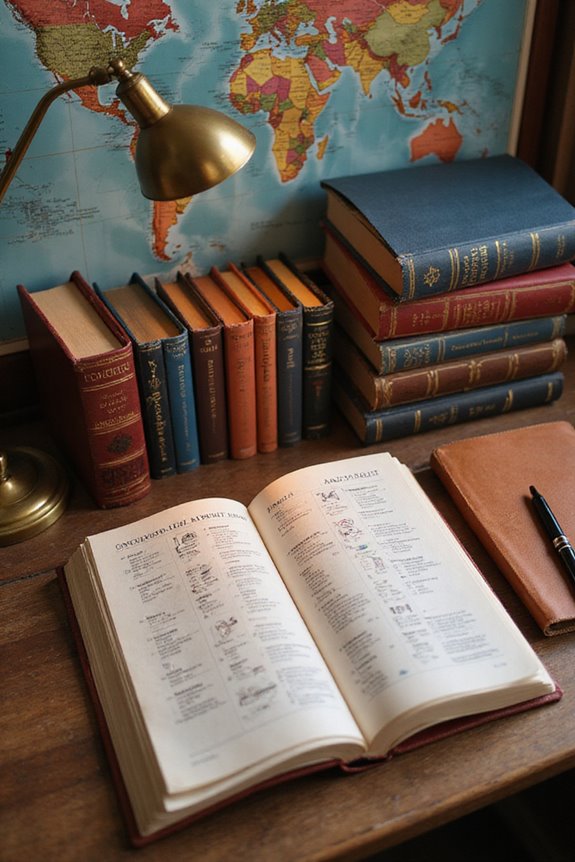
Modern political analysis and theory books provide critical insights into the evolving landscape of governance, ethics, and individual freedoms. These texts explore contemporary governance and address ethical dilemmas we face today. Key works include:
- *Anarchy, State, and Utopia* by Robert Nozick, challenging traditional liberalism with a focus on minimal state intervention.
- *Justice: What’s the Right Thing to Do?* offers accessible discussions on moral and political theory.
- *On Liberty* by John Stuart Mill elucidates the balance between personal freedoms and government authority.
- *The Shock Doctrine* by Naomi Klein critiques neoliberalism and its impact on society, highlighting how political theories can shape public policy.
- *Autocracy, Inc.* by Anne Applebaum examines the rise of authoritarian regimes globally.
These texts are essential for understanding modern political dynamics and ethical considerations, especially in light of how political books reshape our understanding of ideologies and governance.
Books Providing Historical Political Context
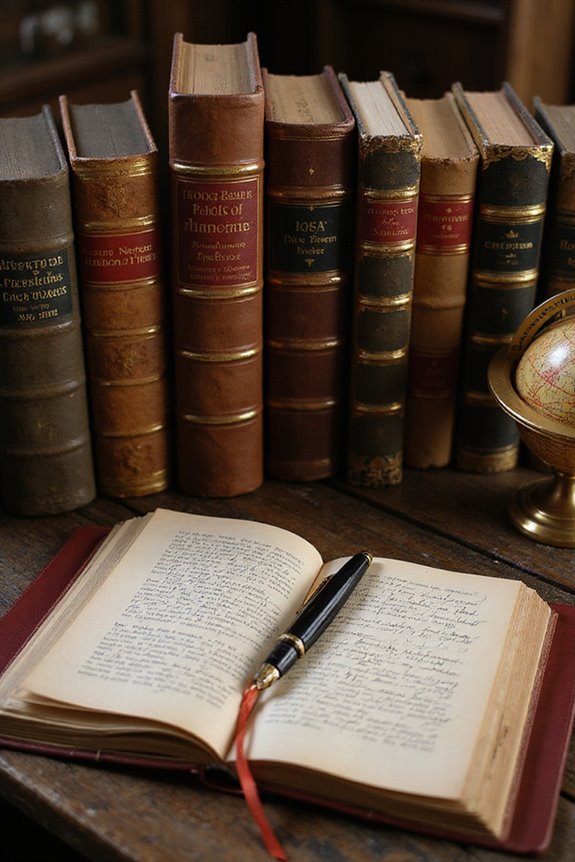
Understanding historical political context is essential for grasping the complexities of contemporary governance and societal structures. Here are several key books that provide valuable insights:
- *Team of Rivals* by Doris Kearns Goodwin illustrates Lincoln’s leadership amidst Civil War challenges, emphasizing collaboration with political opponents. The theme of historical leadership strategies remains relevant as modern leaders face their own divisive contexts.
- *Alexander Hamilton* by Ron Chernow highlights Hamilton’s foundational role in shaping the U.S. political system and its historical context.
- *The Woman’s Hour* by Elaine Weiss recounts the pivotal events leading to women’s suffrage in the U.S., reflecting on historical political narratives.
- *The Invisible Bridge* by Rick Perlstein explores late 20th-century transformations, offering a detailed historical analysis.
These works deepen our understanding of political narratives and the historical context that continues to influence today’s political landscape. Additionally, they underscore the importance of collaboration and unity in effective leadership, a theme exemplified by Lincoln’s presidency.
Books on Political Power and Corruption
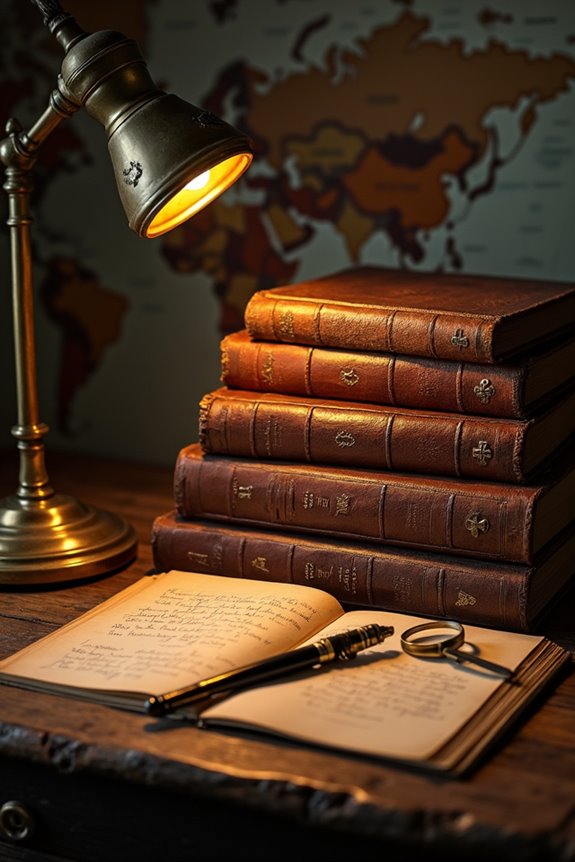
Contemporary novels such as *The Last Trial* uncover judicial corruption intertwined with corporate greed, showing how these issues affect vulnerable populations. Investigative texts like *Profiles in Corruption* expose the secretive dealings of political elites, highlighting mechanisms of exploitation. Together, these books offer essential perspectives on the complex interplay of power, corruption, and the critical demand for accountability in governance. The discussions around excessive private interests in public power are particularly relevant in understanding the systemic issues faced in contemporary politics. As highlighted in *Dark Money*, the influence of wealthy donors on political outcomes demonstrates the pervasive nature of corruption in our democratic systems.
Frequently Asked Questions
How Do I Choose the Right Political Book for My Interests?
When we’re choosing the right political book, let’s explore different genres that resonate with us. We should focus on personal relevance, aligning our interests with themes that inspire or challenge our understanding of politics.
Are There Political Books Suitable for Beginners?
Steering through politics can feel like exploring a vast ocean. For beginners, we recommend essential readings like *An Introduction to Political Philosophy* and *Justice: What’s the Right Thing to Do?* to help chart a clear course.
What Are the Most Influential Political Authors of All Time?
When we consider the most influential political authors, we can’t overlook Machiavelli’s influence on modern political theory. His insights on power dynamics continue to shape our understanding of governance and strategy in contemporary politics.
How Can I Analyze the Themes in Political Literature?
Like peeling an onion, analyzing themes in political literature requires layers of understanding. We can use theme identification and literary techniques to uncover deeper meanings, revealing how narratives reflect and critique the political landscapes of their time.
Which Political Books Offer Diverse Perspectives on Issues?
When exploring diverse viewpoints in global politics, we find works like Danielle Allen’s and Ibram X. Kendi’s invaluable. They challenge us to understand systemic inequalities and the importance of inclusive participation in democratic processes.



